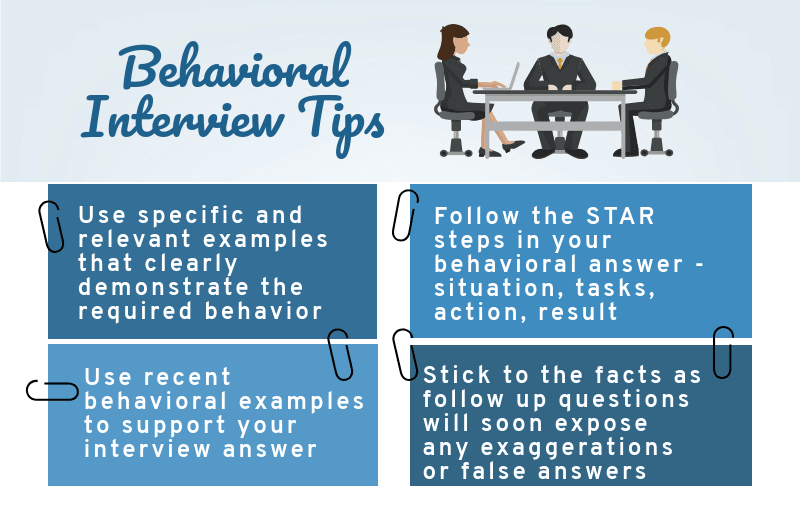In today’s competitive job market, technical skills are often insufficient for software engineers to excel in hiring processes. This guide provides software engineers with essential tools, including common question types, the STAR method for structured responses, and preparation for real-world scenarios, to effectively showcase their problem-solving abilities and teamwork.
“A behavioral interview guide for software engineers evaluates candidates by examining their past experiences to predict future performance, focusing on problem-solving, teamwork, and adaptability in various work situations.”
In this article, We will discuss ”behavioral interview guide for software engineers”
Understanding Behavioral Interviews:

What Are Behavioral Interviews?
Behavioral interviews are a structured interviewing technique based on the premise that past behavior is the best predictor of future behavior. Instead of focusing solely on technical skills or theoretical knowledge, behavioral interviews explore how candidates have handled specific situations in their professional lives. This approach allows interviewers to gain a deeper understanding of a candidate’s interpersonal skills, problem-solving abilities, and cultural fit within the organization.
Why Are They Important?
For software engineers, behavioral interviews are particularly significant for several reasons:
Assessing Soft Skills:
Technical skills are critical for a software engineer, but soft skills such as communication, teamwork, and adaptability are equally important in a collaborative work environment. Behavioral interviews provide insights into how candidates navigate interpersonal dynamics and contribute to team success.
Also Read: How Is The FBI Connected With Soft Software Development – FBI & Cybersecurity Software!
Understanding Problem-Solving Approaches:
Engineering often involves overcoming complex challenges. Behavioral questions help interviewers understand how candidates approach problem-solving and whether they can think critically under pressure.
Cultural Fit:
The right technical skills do not guarantee a good fit within a company’s culture. Behavioral interviews can reveal whether a candidate aligns with the organization’s values and work style.
Key Behavioral Interview Questions for Software Engineers:

Below are some common behavioral interview questions specifically designed for software engineers, along with explanations of what interviewers seek in responses:
1. Describe a challenging project you worked on. What obstacles did you face, and how did you overcome them?
This question evaluates problem-solving skills, perseverance, and the ability to learn from challenges. Look for responses that detail specific actions taken and outcomes achieved.
2. Can you give an example of a time when you had to work with a difficult team member? How did you handle the situation?
This assesses interpersonal skills and conflict resolution. Interviewers want to see how candidates navigate team dynamics and whether they can maintain professionalism in challenging situations.
3. Tell me about a time you made a mistake in your code. What did you learn from it?
This question gauges accountability and the ability to learn from errors. Strong candidates will openly discuss their mistakes and highlight how they took corrective action to prevent recurrence.
Also Read: What Is The Cost Of Sales For A Software Company – Understanding!
4. How do you prioritize your tasks when working on multiple projects?
This evaluates time management and organizational skills. Candidates should demonstrate their ability to assess urgency and importance, showing a methodical approach to prioritization.
5. Describe a situation where you had to adapt to significant changes in project requirements. How did you respond?
This assesses adaptability and flexibility in a fast-paced environment. Candidates should illustrate their comfort with change and their strategies for maintaining productivity.
Additional Questions to Consider:

6. Can you share an example of a successful collaboration with other teams or departments?
He highlights teamwork and cross-functional communication, important traits in collaborative software development environments.
7. Have you ever had to mentor or train a junior developer? What was your approach?
This evaluates leadership qualities and the ability to share knowledge effectively, fostering a culture of growth and development within teams.
Also Read: What Is Testing In Zillexit Software – Explained Simply!
8. What do you do when you encounter a technical challenge that you cannot solve immediately?
his question assesses resourcefulness and the ability to seek help or explore alternatives when facing obstacles
9. Tell me about a time you had to make a difficult decision regarding a project. What was the outcome?
This explores decision-making skills, revealing how candidates weigh risks and benefits in their professional judgment.
10. Describe a project where you had to incorporate user feedback into your work. How did you go about it?
This highlights user-centered design principles and the importance of iterative development based on feedback.
Tips for Candidates Preparing for Behavioral Interviews:
1. Use the STAR Method:
The STAR method (Situation, Task, Action, Result) is a powerful framework for structuring responses to behavioral questions. Here’s how to apply it:
- Situation: Set the context for your story. Describe the situation or challenge you faced.
- Task: Explain your role and the specific tasks you were responsible for.
- Action: Detail the actions you took to address the situation. Focus on your individual contributions.
- Result: Conclude with the outcomes of your actions. Highlight any positive results or lessons learned.
2. Prepare Specific Examples:
Before the interview, reflect on your work experiences and identify specific examples that demonstrate your skills and competencies. Aim for a variety of scenarios covering different aspects of your work, such as teamwork, problem-solving, and adaptability.
3. Be Honest and Reflective:
Interviewers appreciate candidates who are self-aware and honest about their experiences. It’s okay to discuss challenges or failures, as long as you emphasize what you learned and how you improved as a result. This demonstrates growth and a willingness to learn.
4. Practice Active Listening:
During the interview, practice active listening to ensure you fully understand the questions being asked. If you’re unclear about a question, don’t hesitate to ask for clarification. This shows that you are engaged and thoughtful.
5. Show Enthusiasm and Curiosity:
Use the interview as an opportunity to express your interest in the company and its projects. Ask questions that demonstrate your curiosity about the team, work culture, and ongoing initiatives. This can help you stand out as a candidate who is genuinely interested in contributing to the organization.
Tips for Interviewers Conducting Behavioral Interviews:

1. Create a Comfortable Environment:
Set a relaxed tone for the interview to encourage candidates to speak openly about their experiences. A friendly atmosphere can help candidates feel at ease, allowing for more candid responses.
2. Listen Actively:
Pay close attention to candidates’ responses, and ask follow-up questions to delve deeper into their thought processes and experiences. Active listening can reveal additional insights that may not surface in initial responses.
Also Read: SG200-56 Error Message: Copy: Illegal Software Format – Fix SG200-56 Firmware Errors!
3. Use a Consistent Evaluation Rubric:
Develop a rubric for evaluating responses based on key competencies relevant to the role. This can help ensure a fair and unbiased assessment, allowing for more objective comparisons between candidates.
4. Be Open-Minded:
Recognize that different candidates may have varied experiences and backgrounds. Be open to unique problem-solving approaches and perspectives that candidates bring to the table.
5. Focus on Core Competencies:
Identify the key competencies needed for the role and tailor your questions to assess those skills. This ensures that the interview remains relevant to the position and aligns with the organization’s goals.
Real-World Scenarios Where Behavioral Interviews Shine:

Behavioral interviews are particularly effective in identifying candidates who can excel in specific scenarios, such as:
1. Agile Development Teams:
In agile environments, collaboration and flexibility are essential. Behavioral interviews can reveal how candidates have previously adapted to changing requirements and worked effectively within cross-functional teams.
2. Startups and Fast-Paced Environments:
In a startup setting, engineers may need to wear multiple hats and adapt quickly to evolving business needs. Behavioral questions can highlight candidates’ resourcefulness and ability to thrive under pressure.
Also Read: What Is The Team Software Process – An Complete Overview!
3. Projects with High Stakeholder Interaction:
For projects requiring regular interaction with stakeholders, behavioral interviews can assess candidates’ communication skills and ability to manage expectations effectively.
FAQ’s
1. What is a behavioral interview?
A behavioral interview focuses on a candidate’s past experiences to predict future behavior, assessing how they have handled specific situations in their work.
2. Why are behavioral interviews important for software engineers?
They help evaluate soft skills, problem-solving abilities, and cultural fit, which are crucial for effective collaboration and performance in software development roles.
3. What is the STAR method?
The STAR method is a framework for answering behavioral questions, consisting of Situation, Task, Action, and Result, helping candidates structure their responses clearly.
4. What types of questions can I expect in a behavioral interview?
Questions may include scenarios about teamwork, conflict resolution, project challenges, mistakes made, and adaptability to changes in requirements.
5. How can I prepare for a behavioral interview?:
Reflect on your past experiences, use the STAR method to formulate responses, and practice answering common behavioral questions to build confidence.
Conclusion
In conclusion, mastering behavioral interviews is essential for software engineers to effectively showcase their experiences and soft skills. By employing the STAR method and preparing for common scenarios, candidates can convey their problem-solving abilities. This preparation not only builds confidence but also enhances their ability to connect technical skills with real-world applications. Ultimately, this approach increases the likelihood of securing a position that aligns with their career goals.



